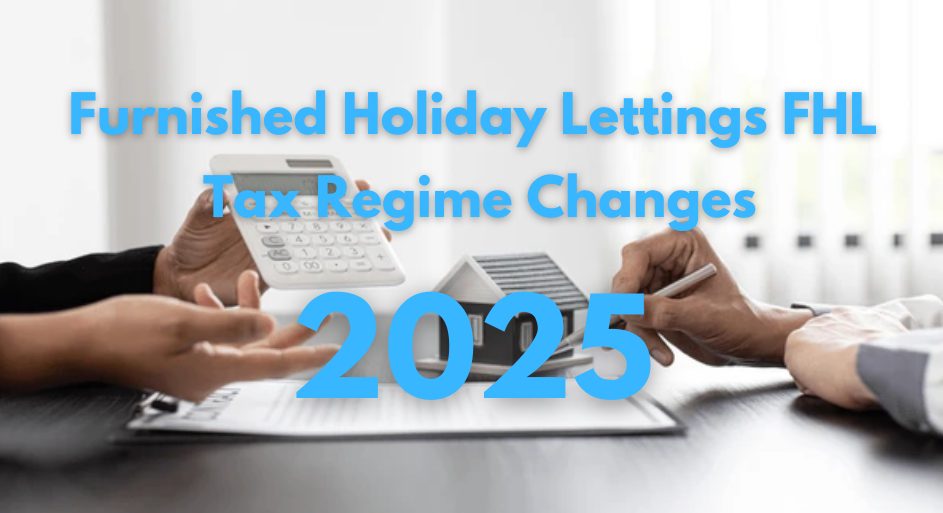Changes to the Furnished Holiday Lettings (FHL) Tax Regime

Current System
Under the current tax regime, Furnished Holiday Lettings (FHLs) benefit from several advantageous tax treatments, setting them apart from other property businesses. These benefits include exemption from finance cost restrictions, more favorable capital allowances, and access to specific reliefs from taxes on chargeable gains. Additionally, income from FHLs is treated as relevant UK earnings, which can be considered when calculating pension contributions.
To qualify as an FHL, properties must be available for short-term letting to the public for at least 210 days and actually let for 105 days or more each tax year. The current tax rules have made FHLs a particularly attractive option for property investors.
The Proposed Changes
The UK government has announced significant changes to the tax treatment of FHLs, effective from April 2025. The new rules aim to align the tax treatment of FHLs with other types of property businesses, removing the specific tax advantages that FHLs currently enjoy. The key changes include:
- Finance Cost Restriction: FHLs will be subject to the same finance cost restrictions as other residential property businesses, where loan interest will only be deductible at the basic rate of Income Tax.
- Capital Allowances: The favorable capital allowances treatment will be abolished. FHLs will only be eligible for the ‘replacement of domestic items relief,’ similar to other property businesses.
- Reliefs on Chargeable Gains: FHLs will no longer qualify for certain reliefs on chargeable gains, such as rollover relief and business asset disposal relief.
- Pension Contributions: Income from FHLs will no longer count as relevant UK earnings for pension relief purposes.
Impact on Businesses
For businesses operating FHLs, these changes will have a considerable impact:
- Increased Tax Liabilities: The removal of the advantageous tax treatments will likely result in higher tax liabilities for many FHL operators.
- Reduced Investment Appeal: The loss of capital allowances and chargeable gains reliefs could reduce the attractiveness of FHLs as an investment option.
- Simplified Reporting: On a positive note, the changes will simplify tax reporting, as FHLs will now be treated the same as other property income.
Businesses will need to reassess their financial strategies and consider the potential impact on profitability. For some, this may mean reevaluating the viability of continuing to operate under the FHL model.
For more detailed information on these changes, you can refer to the official government guidance here.

